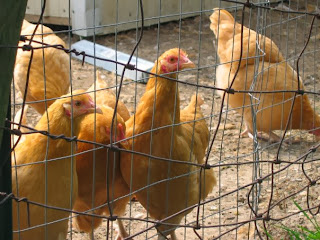Worth Winning
"People nowadays, nobody wakes up before seven. Nobody even knows what it is to wake up early and go to work. I always, still, get up at five o'clock, even though I don't have to, because that's just what I've always done and that's the way you should do it."
The ramblings of the old man berate reluctant listeners gathered together in the waiting room of the cardiology clinic. Most, probably the late sleeping degenerates at issue, avert their eyes, burying themselves deeper into the free diabetes publication provided to waiting room patrons by AARP. Others, folks of the same mind but not the same vocabulary or volume, nod slightly in affirmation, the certainty of their shared supremacy offering stability even while their diagnoses of congestive heart failure or carotid artery disease send them lurching.
The crotchety old man, (maybe he'd be in a better mood if he got some sleep), continues his soliloquy for a bit until a woman, possessing either great sympathy towards the elderly or really deep rooted disdain for late sleepers, moves to the chair next to his and chimes in with anecdotes about times in the past when she had woken up early. So as not appear lazy in the company of this new contributor, the old man expanded on his break of dawn antics, daring the woman to counter. She does, and suddenly they are rivals, competitors in an unarticulated contest of mornings witnessed.
This is the sort of competition in which no one wins-it's a meaningless brag contest of self appointed winners - and all bystanders lose as increasingly audible recollections become both earlier and more boring.
As a kid, my dad would often remind us that "if you don't have anything nice to say don't say anything at all." This is good advice for living a kind life. I would add that if you don't have anything interesting to say you shouldn't say anything at all. This is good advice for contributing to conversations.
A Teaching Fellow once chided my English class: "Interesting? That is the weakest word in the whole of literary criticisms. It doesn't explain anything, offer anything, it just calls attention to something you read. You might as well brag that you read the assignment." This prompted a stream of justification for the usage of the word and then discussion of what "interesting" really meant. It was agreed that outside of literary analyses, (where, yes, it could be viewed as a non-statement), interesting designated an item of interest, something compelling, something about which you'd like to know more.
Brag fests rarely elicit such responses.
Before too long the bright and early duo disbands as the woman is finally called to her appointment with her cardiologist where, no doubt, she would be reminded to limit salt intake and exercise regularly. Fortunate timing too, as the number of open seats in the room was dwindling. After her departure, the room was quiet for a few moments until the first old man turned to another, "You know what I miss about getting up early? Bacon." This was the topic for which the room was waiting. Heads rose, ears perked, mouths salivated. Bacon. To a group of cardiology patients, for all of whom consumption was presumably forbidden, the mention of bacon drew out memories of enjoyment and expressions of longing. In this setting, newly freed of judgement and competition, stories were shared with earnestness and received with recognition.
Interesting? Maybe not, but at least the air of competition had subsided: after all, everyone is a loser when you talk about bacon in the cardiology clinic.



Comments
Post a Comment